During his successful presidential campaign this past year, Donald Trump consciously tried to raise the testosterone quotient of the Republican ticket.
Hulk Hogan and Kid Rock were wheeled out at the Republican National Convention, as was UFC chief executive Dana White. Trump even attended a UFC match in New York City’s Madison Square Garden. In an October speech, the president-elect cast himself as the “protector” of women … “whether they like it or not.” His running mate, Sen J.D. Vance of Ohio, had in the past talked disparagingly about “childless cat ladies” and being “red-pilled”—masculinist online slang alluding to the uncomfortable truths supposedly being concealed by progressive orthodoxy.
Reportedly taking the advice of his 18-year-old son Barron, Trump also worked to woo various masculinity influencers. He sat down for interviews with the comedian Theo Von and the streamer Adin Ross. He invited internet pranksters the Nelk Boys onto his private Boeing 757 (nicknamed Trump Force One). His interview with the YouTuber Logan Paul amassed nearly 7 million views. This outreach campaign to the bro podcast circuit culminated in a three-hour interview on The Joe Rogan Experience—a podcast with an audience of more than 11 million listeners that skews around 81 percent male. (Kamala Harris, for her part, declined to take part in a similar interview due to supposed scheduling constraints.)
In a way, Robert F. Kennedy Jr. was right when he predicted last year that the 2024 election would be “decided by podcasts.”
It’s perhaps not surprising that a politician like Trump—whose aura as a successful business guru is largely built on hype and hot air—should thrive on the YouTube and podcast circuit. They’re for the most part light and non-confrontational, places where good vibes are prized more than hard-nosed journalistic probing, where jokes and one-liners are more important than careful elucidations of policy. In this sense, Trump sitting down for pre-election interviews with the likes of Paul or Rogan can perhaps be seen as the acceleration of a process remarked upon by the media theorist Neil Postman in Amusing Ourselves to Death. “Serious public conversation [has] become a form of baby-talk,” Postman remarked almost 40 years ago. And baby-talk is a language that Trump is fluent in today.
Though Trump was already popular on the male influencer circuit, his outreach to the big players of new media during the election campaign arguably helped bring swaths of the male demographic decisively into the Republican camp. In 2020, President Joe Biden beat Trump with male voters under 45. This November, however, Trump captured 54 percent of the male vote compared with 45 percent of the female vote. He also won 57 percent of young male voters (ages 18 to 29). Trump has always enjoyed a high level of support from white men; however, in the 2024 election, he also won 43 percent of male Latino voters and 25 percent of black male voters.
Some in the Democrat camp have sought to blame misogyny for Vice President Kamala Harris’ election defeat. Patti Solis Doyle, who ran Hillary Clinton’s 2008 campaign, told Politico in the immediate aftermath of the election that “the country is still sexist and is not ready for a woman president.” A surge in the popularity of the more extreme end of the manosphere—a loosely affiliated network of masculinist websites, blogs, and online forums—would seem to support this neat and tidy explanation. Influencers such as Andrew Tate (the self-proclaimed “king of toxic masculinity”) have attracted a cult-like following in recent years. The 38-year-old British-American former kickboxer’s short motivational videos on money making, working out, and “how to treat” women have been viewed over 13 billion times on TikTok.
And yet it’s probably more complicated than sexism alone. As the author Susan Faludi wrote way back in her 1991 feminist classic Backlash, pushback against women trying to improve their status has often come from men who are themselves grappling with “real threats to their economic and social well-being.”
I’ve had conversations with lots of men like this in recent years. In my 2018 book Hired, I looked at how de-industrialization in Britain had hurt the once proud working-class communities (which are analogous in many ways to the American Rust Belt). The old male-dominated industrial jobs may have been backbreaking and dangerous, but there was a certain dignity and camaraderie to the labor, qualities that were seldom found among younger generations of working-class men toiling away dutifully in the Amazon fulfillment centers and call centers that had replaced the coal mines and steel plants of old. One of the towns I spent time in was Rugeley in central England, where Amazon had arrived in town 20 years after the coal mine had closed. “People say, ‘I’m only at Amazon,’ and in the past they would’ve never said ‘I’m only at the pit,’” one of the local ex-miners told me. “You’d have said ‘I’m a collier,’ because that’s what you were and you were proud of it.”
In the United States, the income of white men without college degrees has fallen over the past four decades as globalization has hollowed out skilled working-class occupations. In 1980, men without college degrees took home more than the average American worker. Today they make far less and have been surpassed in income by women with college degrees. As the Anglo-American writer Richard Reeves points out in his 2022 book Of Boys and Men:
The gender gap in college degrees awarded is wider today than it was in the early 1970s, but in the opposite direction. The wages of most men are lower today than they were in 1979, while women’s wages have risen across the board. One in five fathers are not living with their children. Men account for almost three out of four ‘deaths of despair,’ either from a suicide or an overdose.
Resentment stemming from such a precipitous drop in relative status has attracted some to the anti-feminist politics of the manosphere—the subject of my forthcoming book, Lost Boys. The manosphere begins with the feminist movement as the point at which things started to go downhill for men. From there it tells men that in order to feel powerful again they should seek to dominate in their relationships. “If you don’t feel like a king in your house, how are you to feel like a king anywhere else?” Andrew Tate tells his legions of young acolytes.
For some in the manosphere, it is Donald Trump who embodies the idea that men should always be dominating those around them. Through their eyes, a Trump presidency will function as a vehicle for a re-assertion of power over women. Trump himself seems to be alive to the precarity and resentment of sections of his electoral base, regularly hinting to men that the remaining fragments of status they cling onto are threatened by various “un-American” miscreants.
The importance to Trump of the alternative media ecosystem is hard to overstate. The progressive YouTuber David Pakman has perceptively observed that a lot of the ostensibly non-political online media that has emerged in recent years—encompassing a range of topics including fitness, dating, gaming, and business and entrepreneurship—is “right-wing coded.” Values like self-reliance are revered and contrasted favorably with being overly “woke” or having a “victim mentality.” Meanwhile, audiences are encouraged to look up to “high-status” men such as Trump and Elon Musk. (The realities of how both men made their money are almost always skirted over).
For a lot of the men who inhabit these communities, voting for Trump was a cultural statement as much as a rational economic calculation. A 28-year-old man I met in Las Vegas—a former Bernie Sanders supporter who was now part of the manosphere’s red pill movement—told me that to be a progressive in 2024 was to be a masochist. “It’s like white men are the only people left who it’s acceptable to scold all the time,” he said. He had gravitated toward the manosphere because he felt the influencers in that space didn’t treat him as if he had won the lottery simply by being born male. Voting Trump was for him a “f—k you” to being lectured about “privilege” and having his manners dictated to him by college graduates.
As progressives increasingly encourage men to embrace values like tolerance and equality—while refracting everything through the prism of identity politics—a lot of men I met while researching my book felt as if they were being pulled in opposite directions. “The world is a pretty harsh and unforgiving place and some of the influencers in [the manosphere] are straight with you about that in a way others aren’t,” said an 18-year-old named Alex from Boston. In their everyday lives, with the looser employment arrangements of the burgeoning “gig economy” (a term used to describe app-based freelance work), these same men often have to compete in a ruthless economy that rewards accumulation and “coming out on top.” They are caught between the cultural progressivism of the administrative state and the behaviors required to succeed in an often hard-hearted market.
Right-wing populists have become adept at exploiting this incongruity, between the things young men are told about the world and the unforgiving reality of their economic lives. It’s easy for privileged activists from elite universities to espouse their sanctimonious cant about “equity” from inside the ivory tower of academia, or for the career politicians in the Democrats to conceal their own sharp-elbowed status climbing in identitarian soundbites.
Trump is at least upfront about how things really work. He is an honest fraud: Life may be a swindle and a racket, but with Trump at least there is no attempt to pretend otherwise. In a cynical era when few believe politicians can change much about anything, it’s perhaps not surprising young men should decide to vote for the charismatic “bro” they would most like to have a beer with.
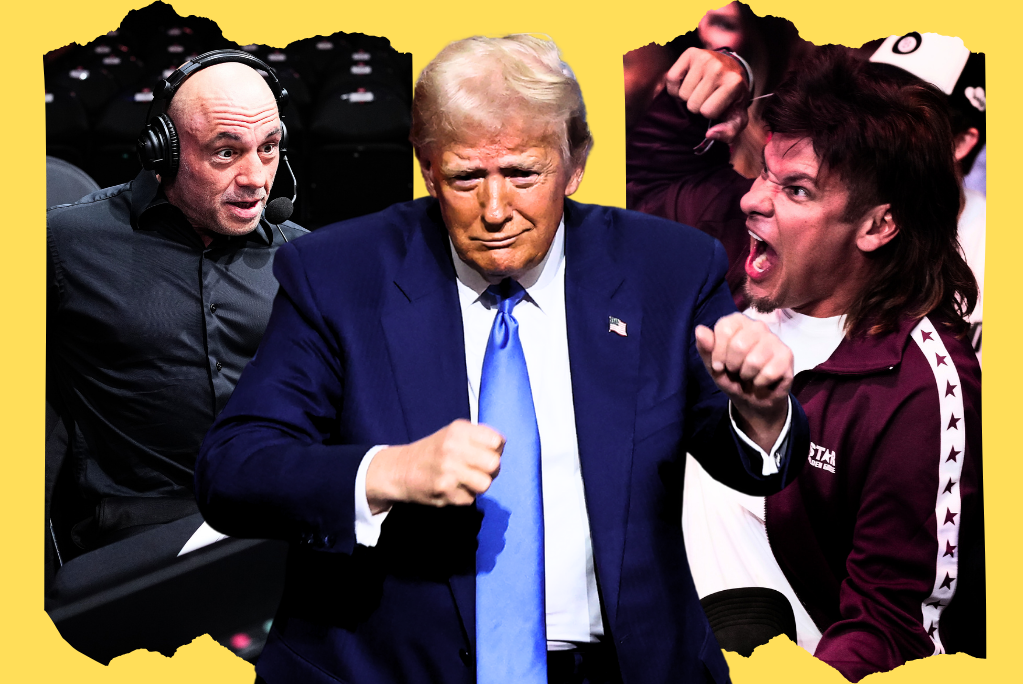
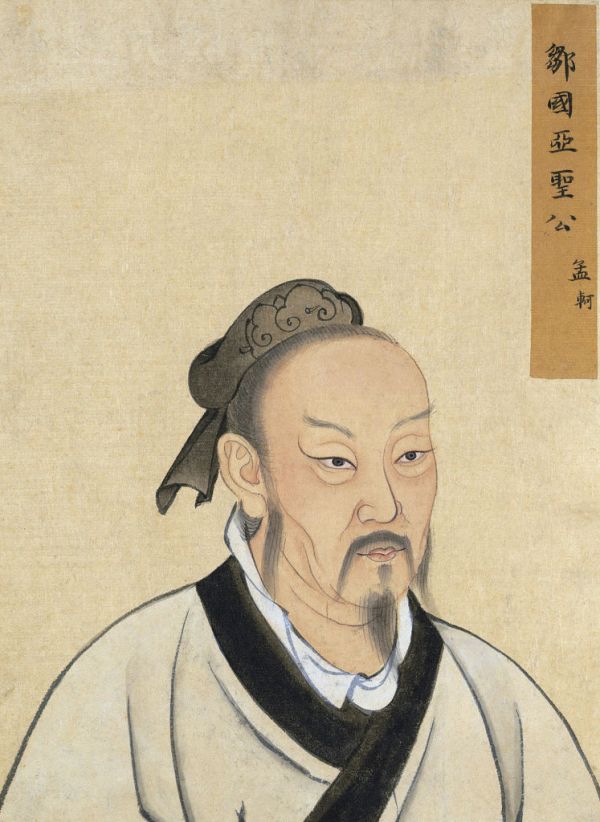
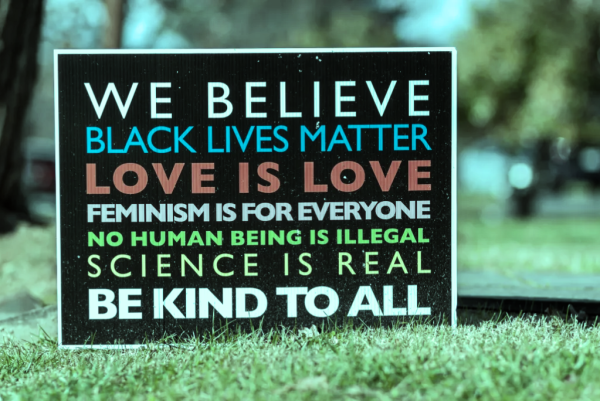
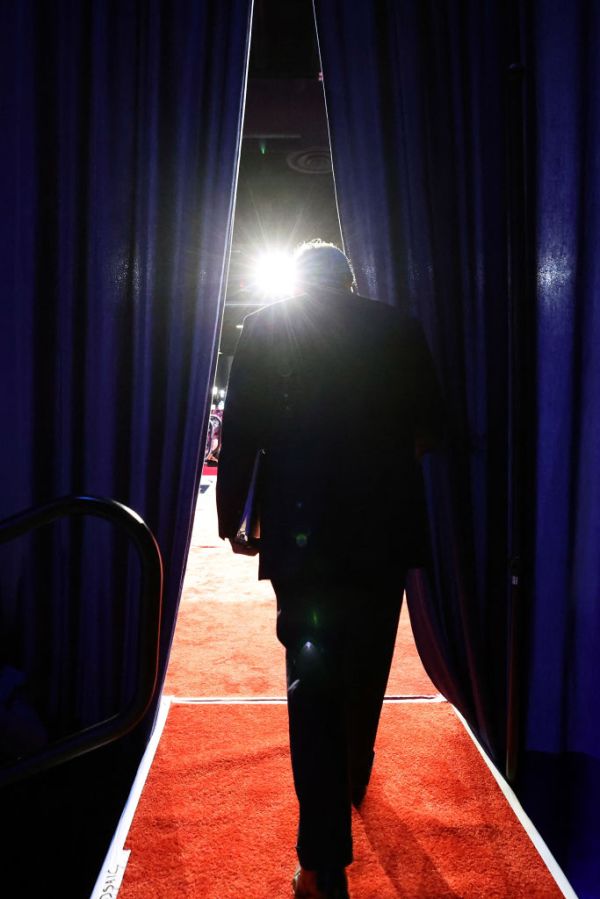

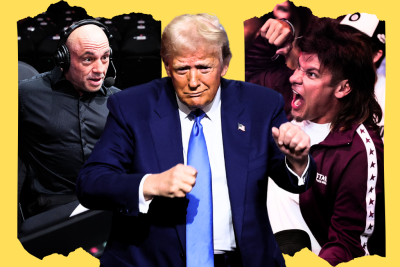
Please note that we at The Dispatch hold ourselves, our work, and our commenters to a higher standard than other places on the internet. We welcome comments that foster genuine debate or discussion—including comments critical of us or our work—but responses that include ad hominem attacks on fellow Dispatch members or are intended to stoke fear and anger may be moderated.
With your membership, you only have the ability to comment on The Morning Dispatch articles. Consider upgrading to join the conversation everywhere.